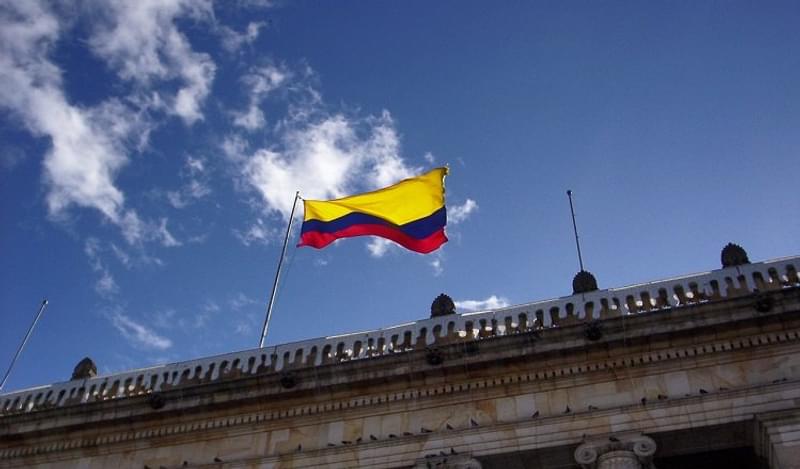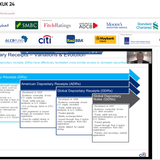Negotiations between the Colombian government and Marxist FARC guerrilla representatives are back to square one after the proposed deal, reached after four years of talks, was turned down by the general public during Sunday’s plebiscite.
Of the less than 38% of the population that turned out to vote, 50.2% rejected the agreement – a difference of 54,000 votes out of 13 million ballots.
Both president Santos and the rebel group’s leader, Rodrigo Londono were quick to issue assurances over their commitment to maintain the ceasefire, however many observers now fear that continuing uncertainty may unsettle financial markets and take a toll on the peso, which has been one of the best performers in Latin America – posting 10% growth this year.
Some have also begun to doubt Santos’s decision-making.
“Investors care about this vote because, even though Santos was not legally obliged to call the referendum, he wanted a vote of confidence, to gain political capital to enact a politically unpopular fiscal reform”, said Jared Lou, a portfolio manager at NN Investment Partners.
The pre-referendum spike in the markets on Friday’s close, which saw the iShares MSCI Colombia Capped ETF (ICOL) rise 27% year to date and the Global X MSCI Colombia ETF (GXG) go up nearly 26%, proved to be short-lived.
As the post-referendum mood set in on Monday, the Colombian peso dropped 2.9 percent to 2,967 to the US dollar, while local Treasury bonds due in July 2024 fell 7 percent. MSCI's iShares also displayed a negative dynamic in early trading.
Economic impact
In broader economic terms, the possible failure of a peace deal could stall government plans to carry out agricultural development projects and tax reform that would rely heavily on foreign investment in the current environment of depressed commodities prices.
Cash flow into the country was expected to boom on the back of a peaceful resolution to the drawn-out conflict. One of the major points of the deal was Santos’s promise to divert funds used to sustain the army into rural development, helping the regions that suffered from fighting.
Many also hoped that an end to violence and attacks on the oil infrastructure by guerrilla fighters would also send a positive signal to foreign investors. It is now not clear how many of the group’s members would stay loyal to their leader, who still insists on a non-violent resolution.
In terms of fiscal policy, even if a new proposal is agreed – which is still expected to contain a hike in value-added tax and measures to widen Colombia’s limited collection base – it is likely to be watered down under pressure from the victorious opposition.
“Colombia may be forced to run tighter monetary policy than they would like if domestic politics prevent them from reigning in the fiscal. It’s politically more difficult to enact fiscal reform than to hike rates,” explained Lou.
Benchmark unchanged
Ahead of the vote the Central Bank announced the decision to keep the current benchmark rate unchanged after a year-long tightening cycle.
According to Alfredo Mordezki, head of Latin American fixed income at Santander Asset Management, uncertainty surrounding the fiscal implications of the referendum may delay the start of the easing cycle, although it won’t change its direction. “We expect a 6% Repo rate for the end of 2017, consistent with 175bp of cuts in the next 15 months,” he noted.
Rating agencies are also watching closely at how the government handles the situation.
“Most important from our perspective is the tax reform proposal to be introduced next week in Congress. It will be important to get approval for this package of reforms; especially given the change we have seen in Colombia’s fiscal metrics due to reduced oil prices,” stated Erich Arispe, Latin America sovereign credit analyst at Fitch.
The “No” vote raises a lot of questions not only about Santos’s political legacy, but also about political developments in the whole region. Governments are being challenged to address not only the post-commodity boom, fiscal goals and a need to diversify economy, but also to deal with a population that may have a different agenda, Arispe points out.
In Colombia’s case, while peace is the ultimate objective, the mechanisms of achieving it are necessarily not in synch with the public’s view.
For now, the fragile ceasefire continues, with both sides willing to return to the negotiating table, but post-vote uncertainty places the economic programme in doubt and may scare off potential investors.
Much will depend on the government’s damage limitation strategy and ability to maintain long-term commitments to reform. The fear is that if the current status-quo is sabotaged, the situation could soon spiral out of their control.









